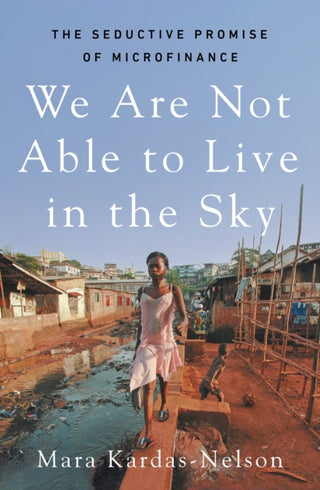-
SHORTLISTED FOR THE J. ANTHONY LUKAS BOOK PRIZEA deeply reported work of journalism that explores the promises and perils of global microfinance, told through the eyes of those who work in small-scale lending and of women borrowers in Sierra Leone, West Africa. In the mid-1970s, Muhammad Yunus, an American-trained Bangladeshi economist, met a poor female stoolmaker who needed money to expand her business. In an act known as the beginning of microfinance, Yunus lent $27 to 42 women, hoping small credit would help them to pull themselves out of poverty. Soon, Yunus’s Grameen Bank was born and, very small but often high-interest loans for poor people took off. In 2006, Yunus and the Grameen Bank won the Nobel Peace Prize for their work on anti-poverty lending. But there’s a problem with this story. There are mounting concerns that these small loans are as likely to bury poor people in debt as they are to pull them from poverty, with borrowers facing consequences such as jail time and forced land sales. Hundreds have even reportedly committed suicide. What happened? Did microfinance take a wrong turn, or was microfinance flawed from the beginning?We Are Not Able to Live in the Sky is a story about unintended consequences, blind optimism, and the decades-long ramifications of seemingly small policy choices, rooted in the stories of women borrowers in Sierra Leone. Kardas-Nelson asks: What happens when a single, financially focused solution to global inequity ignores the real drivers of poverty? Who stands to benefit and, more importantly, who gets left behind?
SHORTLISTED FOR THE J. ANTHONY LUKAS BOOK PRIZEA deeply reported work of journalism that explores the promises and perils of global microfinance, told through the eyes of those who work in small-scale lending and of women borrowers in Sierra Leone, West Africa. In the mid-1970s, Muhammad Yunus, an American-trained Bangladeshi economist, met a poor female stoolmaker who needed money to expand her business. In an act known as the beginning of microfinance, Yunus lent $27 to 42 women, hoping small credit would help them to pull themselves out of poverty. Soon, Yunus’s Grameen Bank was born and, very small but often high-interest loans for poor people took off. In 2006, Yunus and the Grameen Bank won the Nobel Peace Prize for their work on anti-poverty lending. But there’s a problem with this story. There are mounting concerns that these small loans are as likely to bury poor people in debt as they are to pull them from poverty, with borrowers facing consequences such as jail time and forced land sales. Hundreds have even reportedly committed suicide. What happened? Did microfinance take a wrong turn, or was microfinance flawed from the beginning?We Are Not Able to Live in the Sky is a story about unintended consequences, blind optimism, and the decades-long ramifications of seemingly small policy choices, rooted in the stories of women borrowers in Sierra Leone. Kardas-Nelson asks: What happens when a single, financially focused solution to global inequity ignores the real drivers of poverty? Who stands to benefit and, more importantly, who gets left behind?

